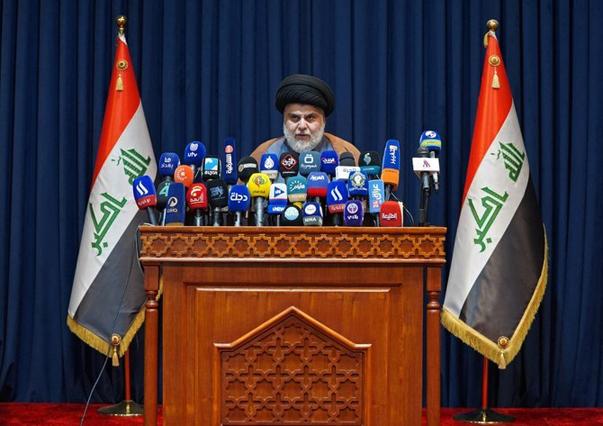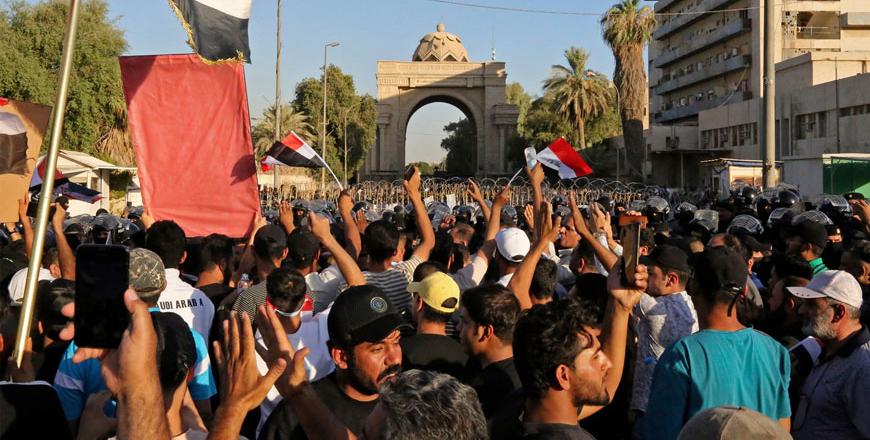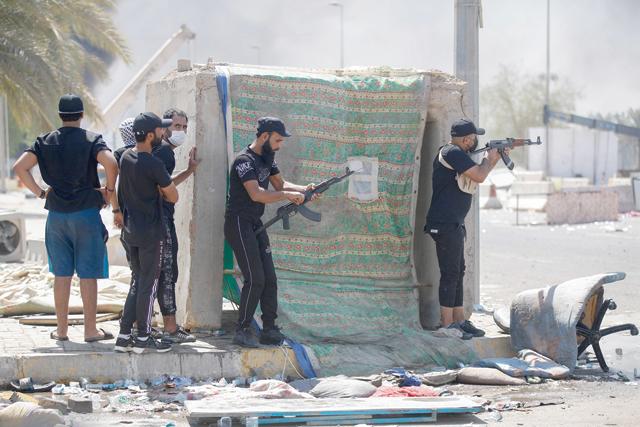You are here
New MPs give pro-Iran bloc upper hand in Iraq parliament
By AFP - Jun 23,2022 - Last updated at Jun 23,2022

Moqtada Al Sadr, Iraqi militia leader and Shiite cleric, made a high-stakes protest by calling on the 73 lawmakers loyal to him to ready resignation papers to end an eight-month parliamentary paralysis (AFP photo)
BAGHDAD — Sixty-four new Iraqi lawmakers were sworn in on Thursday, making a pro-Iran bloc the largest in parliament after MPs from firebrand Shiite cleric Moqtada Sadr's bloc quit earlier this month.
Iraq was plunged deeper into political crises on June 12 when 73 lawmakers from Sadr's bloc — then the biggest in parliament — quit en masse in a bid to break a logjam over the establishment of a new government.
The legislature had already been in turmoil since October's general election, amid intense negotiations between political factions that failed to forge a majority in support of a new prime minister to succeed Mustafa Al Kadhemi.
Following the mass resignation, the seats defaulted to the candidates with the second highest number of votes during October's polls.
A total of 64 new lawmakers were sworn in during an extraordinary session Thursday, according to an AFP correspondent.
Out of the 73 empty seats, about 40 went to the pro-Iran Coordination Framework, who had previously found themselves in the position of having to vie against Sadr's bloc for power for the first time.
Alongside the seats that it had secured previously, the pro-Iran bloc on Thursday found itself with about 130 of the chamber's 329 seats, though official figures have yet to be released by parliament.
Prior to the mass resignation, Sadr had advocated for a "majority" government with Sunni and Kurdish parties, in a break from the "consensus" governments traditionally built through coordination between Shiite factions.
Such a coalition would have sidelined Sadr's Shiite rivals of the Coordination Framework, which includes the political arm of the former paramilitary Hashed Al Shaabi.
But the latest developments are unlikely to spell Sadr's disappearance from the political scene, according to Hamzeh Haddad, a visiting fellow at the European Council on Foreign Relations.
"With the finalisation of the resignation of Sadr's MPs, there is now more clarity from the Shiite parties on forming the new government," he said.
"But that also means more instability, especially if the Sadrists are not given a share in the executive branch," Haddad added.
Related Articles
BAGHDAD — Supporters of powerful Iraqi cleric Moqtada Sadr on Wednesday danced and sang after storming parliament in the capital's high-secu
BAGHDAD — Iraqi supporters of powerful cleric Moqtada Sadr began withdrawing Tuesday from Baghdad's Green Zone after he demanded fighting en
BAGHDAD — Iraq's parliament will open on January 9 for its first session since lawmakers were elected in an October vote won by Shiite cle














